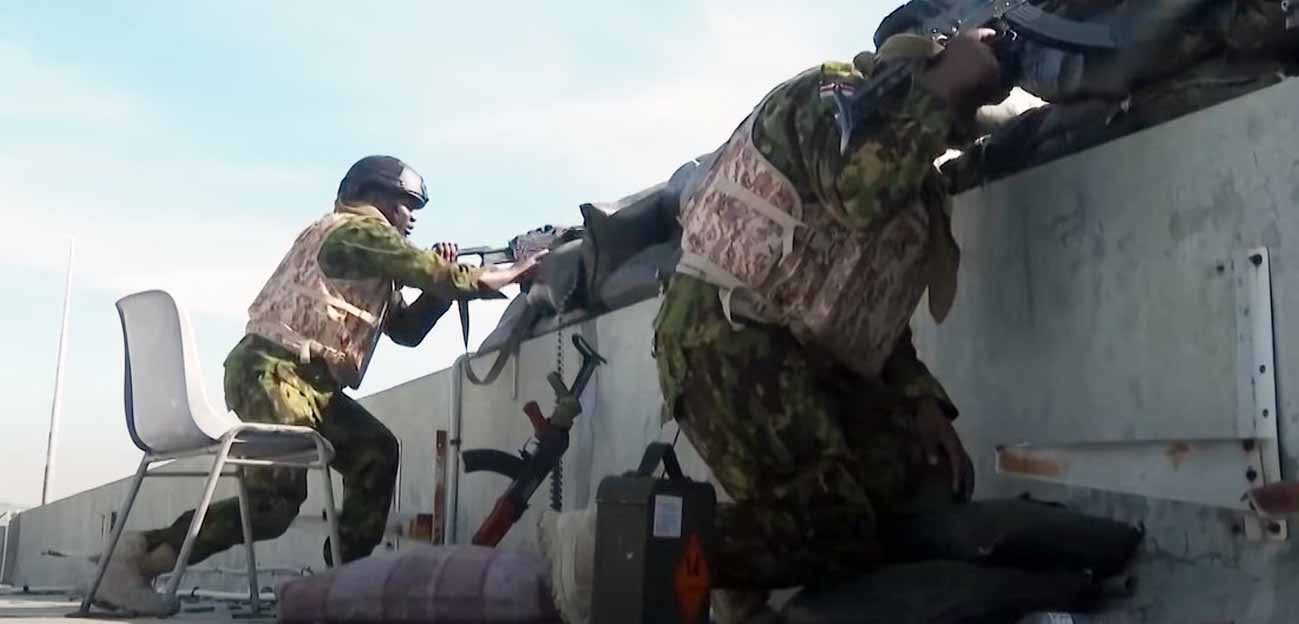About 180 people were slain in the rural community of Pont-Sondé in the Artibonite region in a terrible event illustrating Haiti’s rising security and humanitarian difficulties. Renowned for its harsh ways, the Gran Grif gang carried out the killing under the pretense of eradicating witchcraft and punishing perceived local opposition. Human rights groups and witnesses have said the attack is among the most horrible occurrences in recent Haitian history.
The Incident
The invasion started with the Gran Grif gang raiding a town heavily hit by gang operations, Pont-Sondé. Survivors stated that gang members accused people of practicing witchcraft and backing vigilante groups—a mix of superstition and dread that propelled the violence. Equipped with macheels and rifles, the gang slaughtered men, women, and children without distinction. Over 40 homes were burned to the ground, and more than 6,000 people were forced to escape. According to witnesses, the gang’s deeds were designed to transmit a message to neighboring communities that could object to their dominance.
Escalating Gang Violence in Haiti
The Pont-Sondé killing fits a larger pattern of growing gang activity all around Haiti. Over the past year, armed gangs have extended their influence, presumably controlling about 80% of the capital, Port-au-Prince, and considerable sections of the countryside. These organizations often work with impunity due to the absence of competent law enforcement or governance, which has left communities subject to extortion, violence, and relocation.
Humanitarian Crisis
The massacre has aggravated an already dreadful humanitarian situation. According to the International Organization for Migration (IOM), more than 700,000 Haitians are displaced, with 110,000 newly displaced in the last seven months alone. Artibonite, an agricultural region, has suffered serious disruptions due to gang violence, adding to food scarcity and economic instability. “This massacre highlights the urgency of providing sustained humanitarian aid and security for displaced populations,” remarked Grégoire Goodstein, the IOM representative in Haiti.
International Response
Haiti’s deteriorating security has sparked calls for tougher foreign engagement. In October, a Kenyan-led Multinational Security Support (MSS) mission was sent, but its efficiency has been questioned. Critics believe that the mission lacks funding and staff to confront the degree of gang violence effectively. Ebens Cadet, a socio-political activist, remarked, “Despite international missions, progress remains negligible. Roads are blocked, and violence continues unabated”.
Voices from the Ground
Residents and human rights advocates have expressed both outrage and sadness over the lack of government action. “We feel abandoned,” remarked a local survivor. “The state is absent, and we are left to fend for ourselves.” Prime Minister Garry Conille condemned the incident, calling it “a heinous crime against the Haitian people,” but stopped short of declaring any actions to prevent repeat atrocities.
Moving Forward
As Haiti grapples with this catastrophe, the route forward remains riddled with hurdles. Immediate efforts such as strengthening international security support and sending humanitarian relief are critical. However, long-term solutions must focus on solving systemic poverty, improving institutions, and eliminating the entrenched influence of gangs. Without these actions, Haiti risks further plunge into instability, forcing its people to endure unfathomable pain.
Sources

